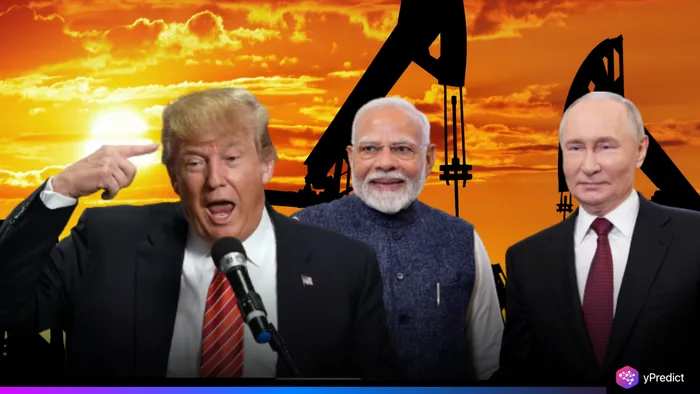
The United States is turning up the heat to stop Russian oil from reaching India, bring major uncertainty to the future of global oil trading. Since 2022, India has been one of the biggest purchasers of Russian crude at a discount. The American actions could change up energy flows and prices in Asia and beyond.
While sanctions become tighter and more focused on enforcement, Indian refiners and global traders watch closely. Until now, India has been conservative but pragmatic, buying oil wherever it was cheapest. But, new signals coming out of Washington indicate that the days of easy discounted Russian barrels may be coming to an end, which is more than just a diplomatic signal. It could mean displacing millions of bpd in oil shipments to India and force India’s oil strategists to rethink their sourcing strategy.
Why the US Wants to Disrupt Russian Oil Sales to India
The US has been escalating its sanctions enforcement to limit Russia’s wartime revenue from fossil fuel exports. Until now, India’s oil purchases were mostly untouched, as the West turned a blind eye in exchange for diplomatic neutrality. However, things are changing quickly.
In July, Washington began warning shipping firms and insurers involved in transporting Russian crude to India. The US Treasury is now using price cap mechanisms more aggressively to target companies that violate the $60 per barrel limit for Russian oil. These actions hint at a broader strategy, to shrink Russia’s oil income by cutting off key buyers like India.
How India Became Russia’s Top Oil Buyer After the Ukraine War
Following Russia’s invasion of Ukraine in 2022, India significantly increased its oil purchases from Moscow. With Western buyers backing away, the heavy discounts offered by Russian suppliers proved attractive to India. By 2023, Russian crude oil shipments to India were reportedly around 40% of India’s crude imports, compared to 2% before the war.
This situation created cost advantages for India. It allowed Indian refiners to get a cheap feedstock, which they exported as refined products to Europe and other markets. However, India’s reliance on Russian crude oil exposes Indian importers to geopolitical risk. With Asian governments now facing increased scrutiny from the US, importers in India may have to deal with more compliance costs, or reputational costs no less.
What Happens If Russian Oil Flows to India Slow Down?
If U.S. sanctions effectively limit Russian oil purchases to India, this will have repercussions for the international trade in oil. India will need to source oil from countries such as Iraq, Saudi Arabia, and the UAE, which are much more expensive. This could lead to a rise in fuel prices at home (which in turn could lead to higher inflation).
Refiners could narrow their margins, while India’s ability to export fuel might be less competitive. There may also be marginal disruptions to the shipping industry as tankers are redirected and the risk to insurance increases. Finally, and most importantly, the energy connection between India and Russia may difficult to maintain, which could erode India’s bargaining power in any future negotiations.
Will India Comply or Push Back Against US Pressure?
India has not signaled any intention to stop buying Russian oil. In fact, officials have stated that energy security comes first. The Indian government maintains that it buys crude based on commercial terms, not political alliances.
However, private refiners and shipping firms are wary of being blacklisted or penalized. Many now seek greater clarity from the US on how sanctions are applied. While India may resist direct political pressure, market forces could eventually force a shift if costs or risks rise too high.
The Global Ripple Effect on Crude Trade
Any disruption to Indian crude imports from Russia will affect broader oil flows in Asia. While China may step in and take additional Russian barrels, it may increase strain on their refining capacity. Additionally, Gulf producers could benefit from increased demand from India, thus, increased pricing power.
The US sanctions have clearly redirected the global energy map. It’s still unclear whether it will actually limit Russia’s earnings or just change flows. For India, this is a challenging balance of affordability, diplomacy and energy security at the same time.







